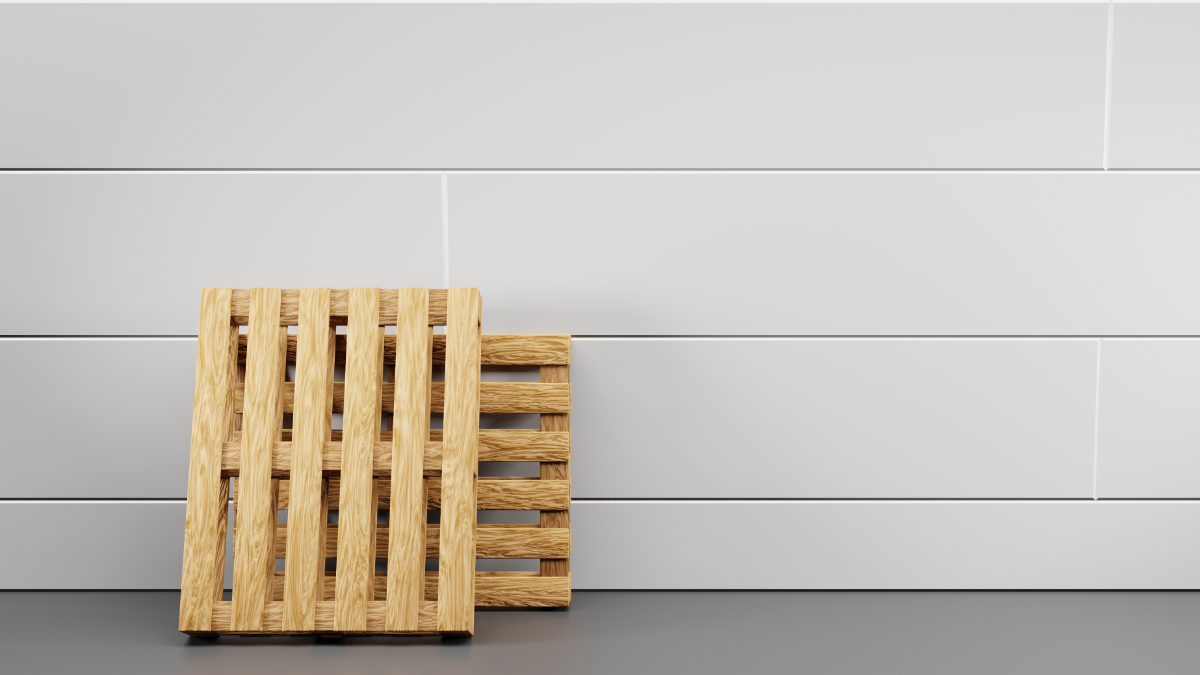
Pallets can be used over and over. Not just for the shipment and storage of goods, but for other DIY projects as well. They are extremely handy construction materials, and can be used to make sofas, tables, shoe racks, beds, pallet art, and so much more!
Besides being versatile and strong, they’re also free. Yes, you heard that right: the best bargain when it comes to wood. For these and other reasons, if you’re a glorified DIYer, we’re pretty sure they come top of your list of inspiring DIY projects.
Well, before you can collect every pallet that comes your way, here are some things you need to know:
1. Ask
Just because they’re free doesn’t mean you can go picking them up whenever you come across them. While most companies dispose of their pallets once goods are delivered, not all give them away. That said, it’s always courteous to ask whether you can have them.
Sure, some companies will stack them in a convenient position with a “free” sign to let people know it’s okay to take them, but some reuse them just like you do. They either recycle them for future shipments or repurpose them for other uses.
As such, ask. Ask whether you can have them. Not only that, but ask whether the number you want is okay. If you’re looking to do bigger projects or commercialize your skill, you could also ask whether you can scavenge there again in the future.
2. Is the Wood Treated?
Most pallets are not made using treated wood but some are. Treated wood is normally easy to recognize because it’s darker in colour and possibly branded, but this isn’t always the case. If you’re unsure, ask.
Treated wood is better when building outdoor structures, but it’s not great for indoor furniture or planters or other containers containing food. This is because it oozes hazardous vapours. It is also not recommended for burning.
3. What Were They Used For?
Did you know that virtually all consumer goods spend some time on a pallet? These include pesticides, foul-smelling chemicals and fish boxes. It is therefore wise to ask what pallets were used for before you can take them home.
After all, you do not want to spend your time and money building something, only to throw it away because you just can’t stand the foul smell it’s giving off. Just to be sure, try scavenging pallets from organizations that are likely to have clean sources of wood. These include books, automobile parts and other non-biodegradable items without foul smells.
4. Pick Pallets That Are in Good Shape
It’s a no brainer: avoid questionable pallets whether they are broken, soggy, or grease-stained. You should also avoid those with protruding nails and other flaws. Find great quality pallets at Verde Trader.
They’re less likely to be beneficial to you, and they’re also more likely to be contaminated. Because you don’t know where the pallets have been, you should disinfect them with a bleach and warm water solution before using them.
5. Sizing: It’s a Thing
Pallets exist in a variety of sizes, which you may be aware of, but it’s something to keep in mind when scavenging. Some organizations, in addition to employing standard-sized pallets, use odd-sized pallets for specific shipments, in which case you may discover that a pallet is slightly larger or smaller than you anticipated.
That can bring about issues with your project if you predetermined your measurements using standard sizes. As such, a tape measure is a useful tool to have on hand to ensure you get what you anticipated.
6. What Exactly Are You Looking For?
As seen, not all palettes are the same. And while it may be tempting to stock up on free pallets, you may end up hoarding a large number of pallets that will not add value to your projects.
Instead of randomly grabbing anything that looks slightly useful, consider the project’s requirements and select those that genuinely meet your needs. Some pallets should be left for other scavengers to use for their projects.
Wind Up
While repurposing and recycling pallets does good for everyone, it’s not all about collecting and amassing every pallets you come across. These pointers will help you choose wisely!




